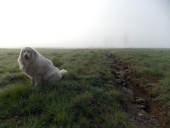
 1
1




seeking mutualism, discovering trees

 6
6




Some places need to be wild
 9
9
















 2
2




Some places need to be wild
 4
4




I'd think any distributed energy resource is good, it reduces the burden on centralized power generation whether that's from nuclear, industrial solar farms, or natural gas power plants. There's also some resilience factor for generating power on site and having that redundancy when central power is unavailable, but that might be less important since nuclear plants operate more continuously than most other power generation.
European Nuclear Society wrote:With a complete combustion or fission...1 kg natural uranium – following a corresponding enrichment and used for power generation in light water reactors – corresponds to nearly 10,000 kg of mineral oil or 14,000 kg of coal and enables the generation of 45,000 kWh of electricity. (Source)
Short version though, it is your choice
 2
2




My main question is your thoughts on whether it is worthwhile to power one's home with solar or other on-site renewables, when nuclear power is provided to the grid this house is connected to?
 2
2




Flora Eerschay wrote:Oh dear, reading the title of your post I thought you mean a nuclear bomb... as I just spoke with my student who is in Belarus :(
seeking mutualism, discovering trees
 6
6




R Spencer wrote:I've been looking for a house and found one that fits my criteria and has good capacity for gardening and other projects I'm focused on.
This house is near a nuclear power plant, thankfully one of the relatively safer builds. I was unsure about that at first but am okay with it - anywhere in the range I am looking in would have me around 10mi from the plant, this house is more like 1 mile as the crow flies. I wonder other's thoughts on living near nuclear power plants, for or against or neutral, though I don't mean to make this a debate about that.
My main question is your thoughts on whether it is worthwhile to power one's home with solar or other on-site renewables, when nuclear power is provided to the grid this house is connected to?
I'd think any distributed energy resource is good, it reduces the burden on centralized power generation whether that's from nuclear, industrial solar farms, or natural gas power plants. There's also some resilience factor for generating power on site and having that redundancy when central power is unavailable, but that might be less important since nuclear plants operate more continuously than most other power generation.
 6
6




Nails are sold by the pound, that makes sense.
Soluna Garden Farm -- Flower CSA -- plants, and cut flowers at our farm.
 3
3








John Daley Bendigo, Australia The Enemy of progress is the hope of a perfect plan
Benefits of rainfall collection https://permies.com/t/88043/benefits-rainfall-collection
GOOD DEBT/ BAD DEBT https://permies.com/t/179218/mortgages-good-debt-bad-debt

|
If you're gonna buy things, buy this thing and I get a fat kickback:
Regionally adapted Midwest Seeds for the rest of US
http://flyoverseeds.com
|



